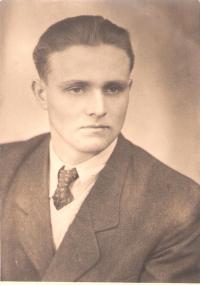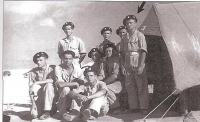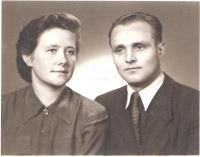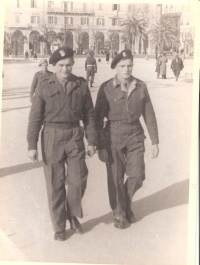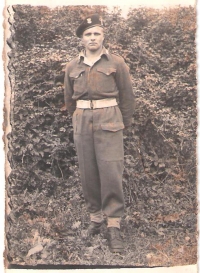Who has not fought properly will not be crowned

Download image
Jan Kloda was born on December 23, 1926 in Vělopolí in the Těšín region. His mother Marie died at the age of four. The witness and his three siblings were raised by his father Josef, who remarried after the death of his wife. After the occupation of Cieszyn by Germany, the Klod family had German citizenship and the witness in 1944 had to enlist in the German army. He took part in the retreating battles on the Western Front. In October 1944, he was captured by the French and managed to join the Polish Armed Forces. Even before Christmas of the same year, he was transferred to Egypt, where he underwent tank training, but did not intervene in other battles. In June 1949, he was baptized and joined the Seventh-day Adventist Church. His faith in God became the main subject of clashes with the communist regime, and in November 1950 he received a military summons to the Auxiliary Technical Battalions (PTP) in the Karviná mines. He refused to take a military oath that was contrary to his religion. On January 16, 1951, a court sentenced him to three years in prison for evasion of service. A few months later, he was transferred from Opava to Leskovice near Brno to work in a quarry. After a while, he found himself in the Opava prison again and was put into a brickyard. He was repeatedly punished for refusing to work on Saturday. Eventually, he ended up in the Nikolaj camp in the Jáchymov region, and after a few weeks he was transferred to the Barbora camp. Here, too, he was punished for refusing to work on Saturdays; for example, he had to be on the lookout in a frosty weather all day. He was offered to work in uranium mines, saying that he would have free Saturdays. The witness agreed and worked on the mining until 1953, when he was released. Subsequently, however, he received another summons to join the PTP unit and in December 1954 he was sentenced to four years in prison once again. He served his sentence again in the Jáchymov mines. He was amnestied in 1957. After returning from prison, he worked until his retirement as a civilian employee in the mines in the Karviná region. After 1989, he was judicially rehabilitated. At the time of filming the interview (2016), Jan Kloda lived in the village of Návsí.
